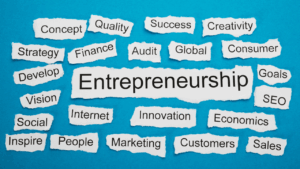Play Text-to-Speech:
Artificial intelligence (AI) has come a long way since its inception. From the days of simple calculators and automated assembly lines, to the advanced algorithms and neural networks of today, AI has made its mark on virtually every aspect of modern society. While AI brings many benefits, it also poses a significant threat to human employment, privacy, and even our existence as a species. As such, it is crucial for us to develop strategies for surviving and competing with AI. Here are ten strategies to consider:
Focus on Creative and Non-routine Work
AI is particularly good at automating routine, repetitive tasks that require little creativity or decision-making. In contrast, creative and non-routine work, such as art, music, and literature, requires human intuition, imagination, and emotion. Therefore, if you want to stay ahead of the AI curve, focus on developing your creativity and pursuing non-routine work that cannot be easily automated.
Embrace Lifelong Learning
AI is constantly evolving and improving, so if you want to remain competitive, you must be willing to learn and adapt. Lifelong learning is the process of continuously acquiring new skills and knowledge throughout your life. By embracing this mindset, you can stay up-to-date with the latest technological developments and find new ways to compete with AI.
Develop a Strong Moral Compass
AI raises a number of ethical questions, such as who is responsible when AI makes mistakes, and how to ensure that AI is used for the greater good. To navigate these complex issues, it is essential to develop a strong moral compass. This means being guided by principles such as empathy, fairness, and responsibility, and using these principles to make decisions that benefit society as a whole.
Emphasize Interpersonal Skills
AI may be able to perform certain tasks better than humans, but it cannot replace human interaction and connection. Therefore, it is essential to develop strong interpersonal skills, such as communication, collaboration, and empathy. These skills are not only important for building relationships and networks, but they also play a crucial role in many jobs that require human interaction, such as teaching, counseling, and healthcare.
Embrace Diversity and Inclusion
AI algorithms are only as good as the data they are trained on, and if that data is biased or incomplete, the resulting AI systems will be as well. Therefore, it is crucial to embrace diversity and inclusion, both in terms of the people involved in developing and implementing AI, and in the data sets used to train AI systems. By including a wide range of perspectives and experiences, we can help ensure that AI is fair, ethical, and beneficial for all.
Become a Critical Thinker
AI can be incredibly powerful, but it is not infallible. In fact, AI algorithms can be biased, flawed, or simply wrong. Therefore, it is essential to become a critical thinker, able to evaluate the validity and accuracy of information and decisions made by AI systems. This means questioning assumptions, testing hypotheses, and looking for evidence to support or refute claims made by AI.
Develop a Growth Mindset
A growth mindset is the belief that intelligence and abilities can be developed through hard work and perseverance. This mindset is essential for competing with AI, as it allows us to approach challenges with a sense of optimism and a willingness to learn and improve. By embracing a growth mindset, we can develop the resilience and adaptability needed to thrive in an ever-changing technological landscape.
Cultivate Emotional Intelligence
Emotional intelligence is the ability to recognize and manage one’s own emotions, as well as the emotions of others. This skill is essential for navigating the complex social and emotional interactions that are an inherent part of human life. It is also critical for jobs that involve working with people, such as management, counseling, and sales. While AI may be able to recognize and mimic emotions to a certain extent, it cannot truly understand or empathize with human emotions the way a human can.
Find Ways to Collaborate with AI
Rather than viewing AI as a threat, it can be helpful to find ways to collaborate with AI. AI can be used to enhance human abilities and improve productivity, and it can also be used to automate routine tasks, freeing up time for humans to focus on more complex and creative work. By working together with AI, humans can leverage the strengths of both humans and machines to achieve better outcomes.
Develop Resilience and Adaptability
Finally, it is crucial to develop resilience and adaptability in the face of technological change. The pace of technological change is accelerating, and the jobs and skills that are in demand today may not be relevant tomorrow. Therefore, it is essential to be flexible and adaptable, willing to learn new skills and pivot to new careers as needed. By developing resilience and adaptability, humans can thrive in an uncertain and rapidly changing world.
In conclusion, AI is a powerful technology that has the potential to transform virtually every aspect of our lives. While it brings many benefits, it also poses significant challenges for human employment, privacy, and even our existence as a species. By developing strategies for surviving and competing with AI, such as focusing on creative and non-routine work, embracing lifelong learning, developing a strong moral compass, emphasizing interpersonal skills, embracing diversity and inclusion, becoming a critical thinker, cultivating emotional intelligence, finding ways to collaborate with AI, and developing resilience and adaptability, humans can thrive in a world where AI is an increasingly prominent and influential force.

Maintenance, projects, and engineering professionals with more than 15 years experience working on power plants, oil and gas drilling, renewable energy, manufacturing, and chemical process plants industries.









